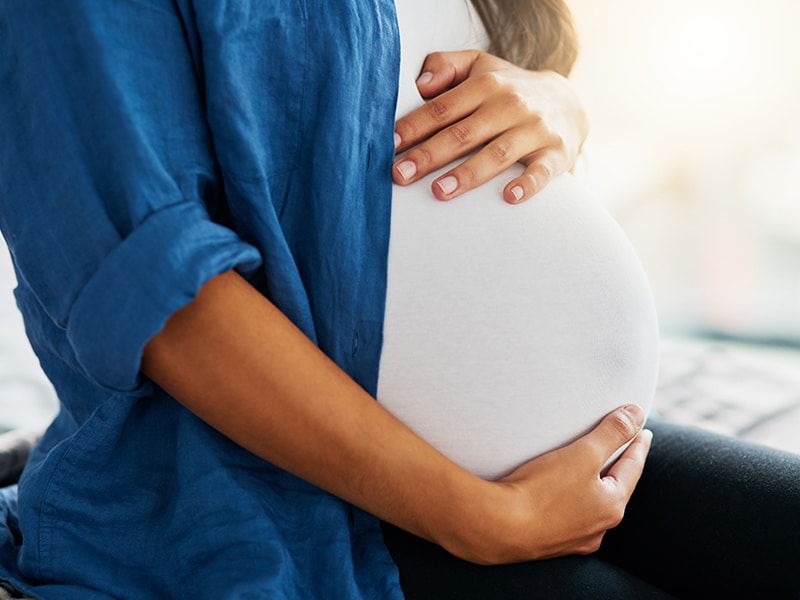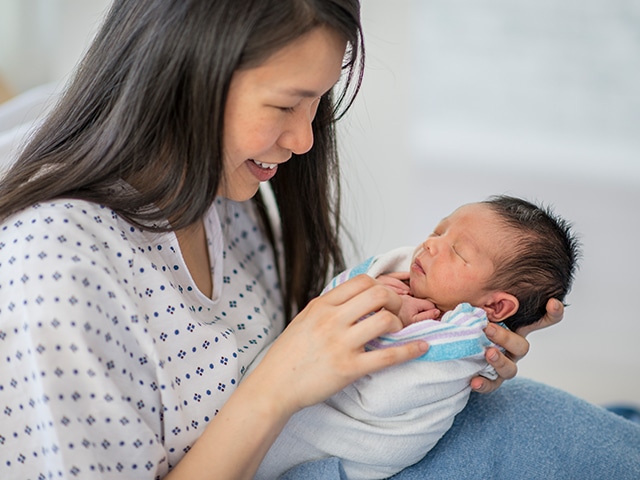Having a baby is a joyful experience, but pregnancy can be taxing in the best of times. Now, with COVID-19 upending life as we know it, welcoming a new life can be especially stressful.
Knowing more about what to expect can help ease those worries and prepare families for the weeks and months ahead.
Here are some answers to frequently asked questions about being pregnant in a pandemic from Sara Northrop, DO, an OB-GYN on the medical staff at Methodist Mansfield Medical Center.
Does being pregnant mean a higher risk of COVID-19?
There’s nothing to suggest that pregnant women are more likely to get sick than anyone else, Dr. Northrop says. But they are known to be more vulnerable to other kinds of respiratory infections, such as the flu or Severe Acute Respiratory Syndrome.
That’s why everyone should take precautions to reduce the spread of the coronavirus. This includes staying at home as much as possible, washing your hands with soap and water, using cloth face masks if you have to go out, and disinfecting frequently touched surfaces.
“In the coming months, most of the U.S. population will be exposed to this virus,” Dr. Northrop says. “You should continue to practice all the protective measures recommended to keep yourself and others free from illness.”
Can I pass it to my baby?
It’s unclear whether infected women can pass the coronavirus to their babies through the uterus or placenta. Scientists are uncovering new information daily to gain a better understanding.
“Early on in the pandemic, data suggested the virus did not cross the placenta, but newer studies are suggesting it is possible,” Dr. Northrop says.
A small number of newborns have tested positive for COVID-19, but it’s not clear if they were infected before or after birth, according to the Centers for Disease Control and Prevention (CDC).
How will it affect the baby’s development?
Although some cases of babies being born too early have been reported among mothers with COVID-19, nothing points to the virus as the direct cause, Dr. Northrop says.
There’s no evidence to suggest COVID-19 will lead to miscarriages or birth defects, but it is worth noting that high fevers during the first trimester of pregnancy can increase the risk of certain birth defects. Miscarriages and stillbirths have been observed with other coronavirus-related infections and the flu.
“Stay up to date on your vaccines, especially the ones recommended during pregnancy,” Dr. Northrop advises.
What about the risk after the baby is born?
Recent data might provide some comfort to new parents. Reports show babies older than 12 months and children generally have less severe symptoms of COVID-19 and better results compared with adults.
But that’s no reason for dropping our guard, especially considering babies younger than 12 months are more vulnerable.
Other family members, along with any nannies and babysitters for other children, should still practice strict social distancing, Dr. Northrop says.
“Remember that if they don’t live with you, you shouldn’t be visiting them.”
What should I do if I am pregnant and experiencing COVID-19 symptoms?
It’s recommended that pregnant patients speak to their OB-GYN for advice.
“Call your doctor right away,” Dr. Northrop says. “Do not go to the office until you have discussed your symptoms with the office.”
Your doctor or health department can also tell you where to get screened and tested.
Will I have to give birth alone?
Methodist Health System hospitals, as well as many others, have tightened their visitation policies, but that doesn’t mean expecting mothers will have to give birth alone.
Patients can bring one person — a spouse, a friend, a relative, or a significant other — to provide support during delivery and labor.
“This is to protect you and your family as much as possible,” Dr. Northrop explains. “Please know that our nurses will be supporting you nonstop throughout the birthing process.”
The American College of Obstetricians and Gynecologists maintains that hospitals or qualified birth centers are still the safest places for having a baby. These facilities are better equipped to deal with any unexpected issues, and many are adjusting policies to minimize the risk of infection.
Is it safe for me to breastfeed if I’m sick?
So far, health authorities report the virus hasn’t been found in breastmilk. But the CDC does recommend the use of face masks and proper hand hygiene before feeding.
Mothers can also provide milk for someone else to give to the baby as long as the bottle and pump are cleaned thoroughly after their use.
What else can I do?
It’s an instinct for mothers to want to protect their children, but it’s just as important for pregnant women to take care of themselves.
“So, take a deep breath,” Dr. Northrop says. “Please practice self-care.”
That means getting outside to take walks and taking a break from social media and news stories to help reduce anxiety.
“Be kind to yourself,” she added.


